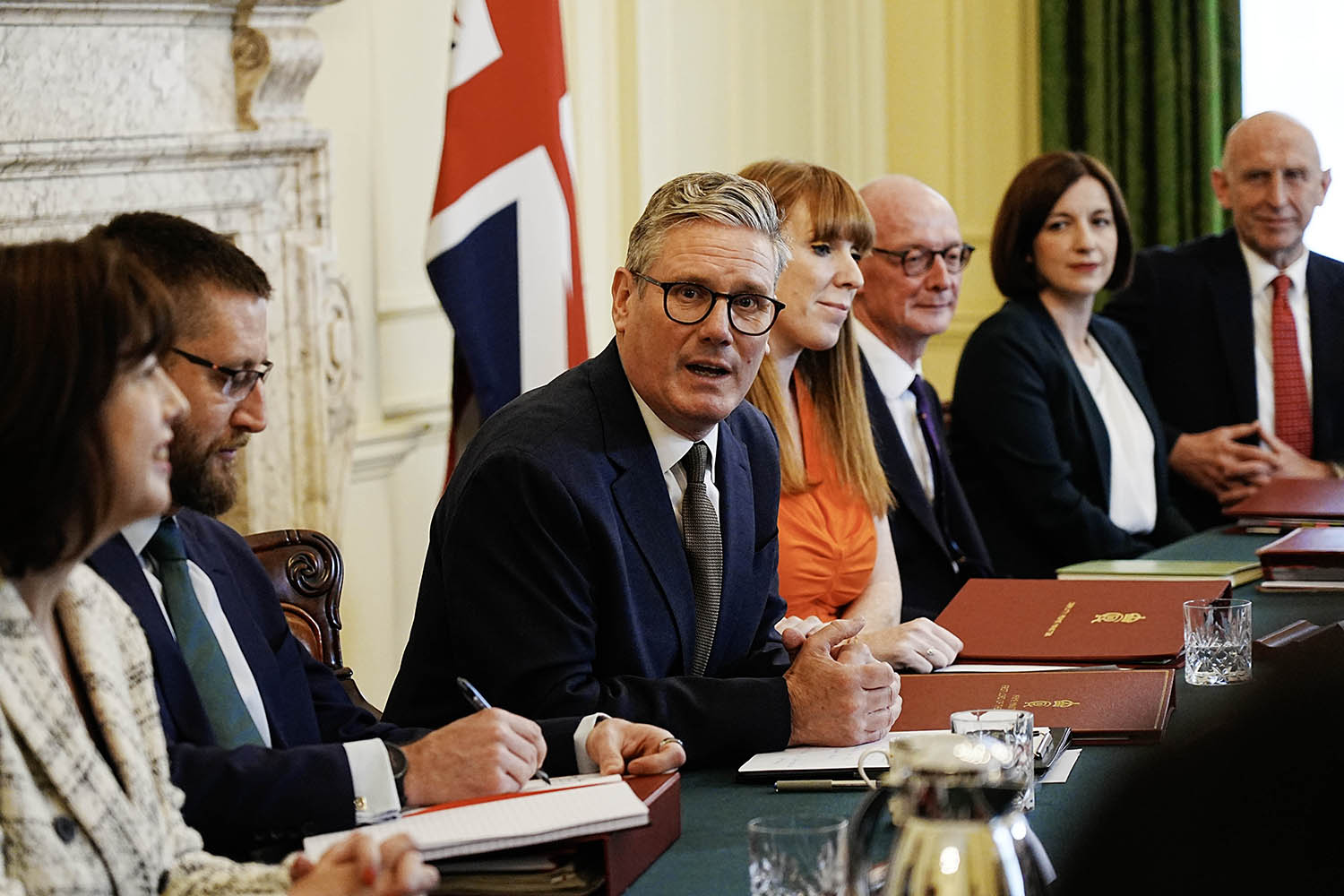
Britons want Labour to stop the small boat crossings, and digital identification could be the answer
Neil Kinnock calls it “the audacity deficit”; the gap between what mainstream opinion in the UK thinks this Labour government ought to do to solve a particular problem and what it actually does. On immigration, the deficit is spiralling out of control.
The government could talk itself out of confronting the issue of immigration on the basis that there shouldn’t be one. It could tell itself that people really shouldn’t be protesting outside asylum seekers’ hotels, because there are only half as many of them as there were two years ago. It could brush past the obsession with small boats, because they only carry a small proportion of total migrants.
But voters are protesting and they are obsessed, and not just the racists and far-right agitators who are making hay in Epping and elsewhere. Look at the polls: immigration is voters’ No 1 concern, Reform UK is on a roll. And the old argument holds true – if progressive parties don’t bring in credible and humane immigration policies, populists have plenty of inhumane ones.
Lesson one from recent experience is that competence alone won’t cut it. For years, immigration policy has been the place where that goes to die. From David Cameron’s pledge to reduce net migration to tens of thousands a year (it never fell below 150,000 a year while he was prime minister) to Keir Starmer’s promise to smash the resolutely unsmashed gangs.
Ministers urgently need to recognise that the incremental, technocratic approach has not won hearts and minds
Related articles:
Lesson two is that signalling and symbols matter. The small boats are a daily, chaotic advert for the belief that governments can’t control who comes into the UK. The policy response has to be effective but it also has to look tough. To some on the left, when it comes to boats and hotels, unreasonably tough. The one merit of the previous government’s catastrophically ill-conceived Rwanda plan was that they understood its symbolic power.
On that measure, nothing this government has done on small boat crossings has been wrong but none of it has been sufficient. Better cooperation with France, especially persuading French police to intervene more forcefully on the beaches, is vital. The “one in, one out” pilot – a legal asylum seeker allowed into the UK from France for each illegal migrant sent the other way – is another success. Following the supply chain of small boats upstream to Germany may yield some results. But the government urgently needs to recognise that its incremental, technocratic approach has not won hearts and minds. It needs a dramatically more powerful solution, and it has one at its fingertips.
For decades, Labour has danced around the introduction of ID cards. A digital version would be both symbolic and practically effective in the fight against illegal migration.
The arguments in favour of a digital ID are that it would prevent illegal immigrants from getting work and stop people accessing public services unless they were entitled to them. It would also prevent migrants from being exploited. President Macron made clear on his recent visit that the lack of a British ID card is a loophole that smugglers use to their benefit.
The arguments against ID cards have waned since Labour first set out to introduce them 20 years ago. The great concern then was yielding more control to an already overbearing state. These days, we routinely carry digital identifiers with us – mobile phones, bank cards, membership cards – without qualm. We surrender masses of personal data to big tech but get queasy about it being used for the public good. When they are asked, Britons favour digital ID. It is encouraging that The Observer can report today that Starmer is seriously considering adopting it. He is right. This government should introduce digital identification for every adult in the UK.
Photograph by Sameer Al-Doumy/Getty




